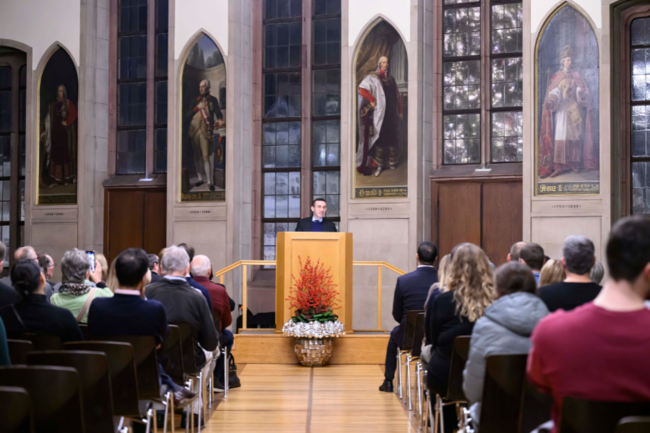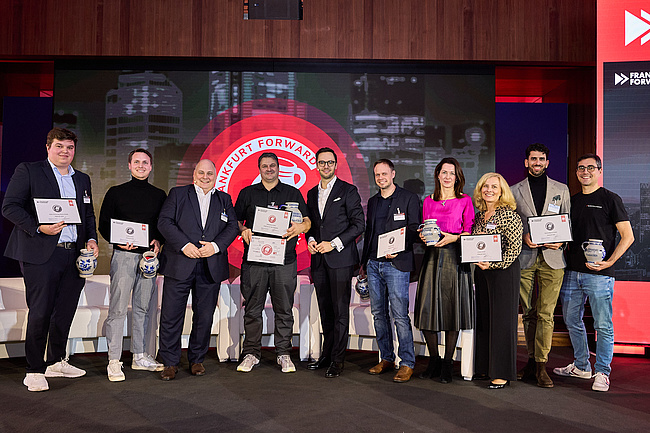Winery director Bärbel Weinert-Maurer and her entire team received a huge compliment at the end of an almost two-day event hosted by the Prinz von Hessen winery to mark its conversion to organic cultivation. They were joined by experts, journalists, tasters and other multipliers, who were invited to an exclusive barrel tasting of the organic wine in the cellar at the winery in Johannisberg and to a dinner at Schlosshotel Kronberg.
According to Donatus Landgraf von Hessen, he freely admitted that he initially had reservations about converting the 35-hectare winery to organic farming. "After all, I come from a conventional farming background - and I still believe today that conventional viticulture has an absolute right to exist." However, as the particularly high quality of the vineyards speaks for itself and, very importantly, the team around winery director Bärbel Weinert-Maurer were open to converting to organic, he took the step.
The Landgrave beams: "The quality of the wines has improved even more with the conversion - and, above all, they are more digestible than before." To him, the wines seem even more harmonious and compatible with the famous Riesling acidity. "Organic cultivation is certainly a question of attitude, but all other components of a winery must also be in favor," says the head of the Prinz von Hessen group of companies, which also includes the winery and Schlosshotel Kronberg.
For two days, experts from all over Germany were invited to this unusual "look into the barrel". To kick things off, they were served a dinner with wine accompaniment - naturally with wines from the Prinz von Hessen winery. The focus here was on more mature vintages. Young and fresh wines, on the other hand, were served the following day when they were invited to an exclusive tasting in the wine cellar. "Apart from me and the cellar master, no guests are normally allowed in there," explained Bärbel Weinert-Maurer in advance. There are two sides to opening the barrels and offering a barrel tasting: it may taste good, but it may not. In this case, that wasn't a problem: all of the wines - around a dozen were tasted, ranging from dry and off-dry estate wines to Pinot Blanc and Dachsfilet Riesling - were not yet ready for bottling, but certainly showed potential.
And so there were only compliments afterwards. "The winery has really developed very well over the last five years," said wine journalist and presenter Ingo Swoboda from Eltville. "The way you represent Riesling for the Rheingau - that's really great." Sommelier Ferdinand Boeselager, who works in the wine trade in Berlin, praised the new style of the wines and was happy to have had "this great experience in the Rheingau". Ronny Weber, sommelier and taster from the Rhineland, was also impressed by the estate's more mature vintages.
And the boss herself? Winery director Bärbel Weinert-Maurer was the driving force behind the organic transformation and is highly satisfied with the special kind of wine tasting: "We are happy and proud to reach another major milestone on the way to a sustainable winery with this barrel tasting and to write a piece of company history at the same time. I am particularly pleased that the new wines were so well received by our high-caliber audience. My thanks go to all employees, without whom this conversion to organic wine would never have been possible and who make the winery what it is today."
The organic transformation of Weingut Prinz von Hessen has been completed over the past three years. In the summer of 2023, the winery was officially certified in accordance with EU guidelines, and the first bottles will go on sale this spring. Since the start of the conversion, no conventional pesticides, herbicides or insecticides have been allowed to be used; instead, only natural protective agents are used. Another major difference lies in the general approach: in conventional viticulture, winegrowers can still react if damage is already visible. As this would be too late in organic cultivation, the plants must be kept fit so that they do not become ill in the first place.













